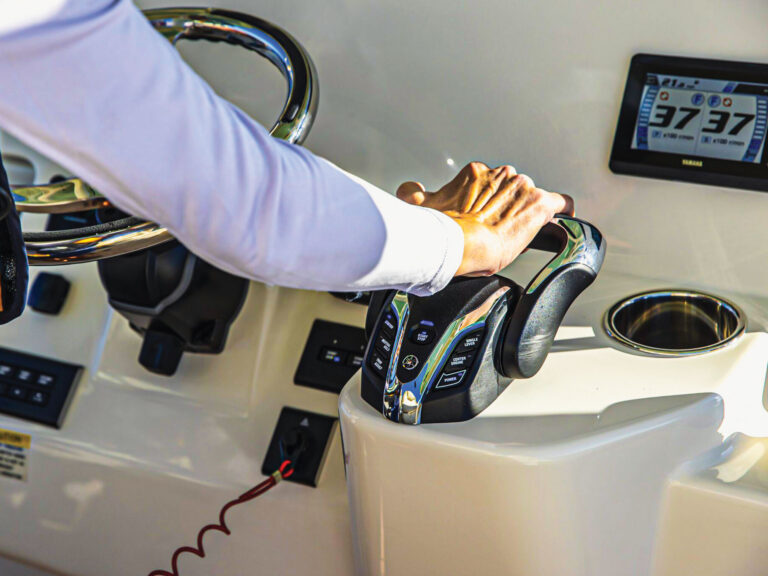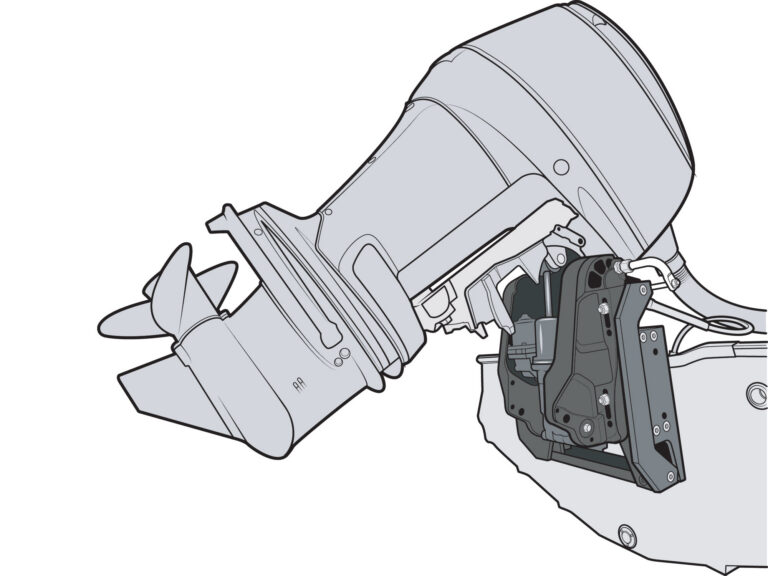Electrical fires on boats can and do happen. The good news is that most are preventable. Here’s how you can be your own best fire marshal in the effort to prevent onboard electrical fires.
Check to see if you are exceeding safe current load for wires that, when overloaded, can heat up to the point of combustion. The specifications page of your owner’s manual tells you the current rating of each instrument. Use a current/wire-size calculator such as the one at securitypower.com/an2wiretable.pdf to determine the proper size wiring for any given run.
Tight Connections
Tangled wiring resembling a rat’s nest, dangling wires similar to a spider web and octopuslike wire connections at a common terminal all contribute to wiring overloads.
Electrical power cables should be run neatly and secured without any slack or drooping wiring. This will minimize the possibility of wiring coming loose and causing an electrical short.
Connect no more than three wires to any terminal point. Install an additional terminal block, post or small fuse or circuit-breaker panel to safely spread the electrical load.
A boat is a dynamic, vibrating platform that can loosen connections over time, creating a point of high resistance that generates heat. Excessive heat can kindle a fire. Confirm that all terminals and connection points are tight and secured.
Moisture Protection
Moisture on electrical connections results in high resistance and heat. Waterproof junction boxes such as the Thru-Dex boxes from Newmar (newmarpower.com) protect connections. If electrical terminal points get wet, immediately check and clean them. Recheck these electrical points periodically to safeguard against latent corrosion.
Fuse, Fuse, Fuse
A properly fused electrical circuit is one of your best protections against circuit overload and potential fire. Should a fuse blow a second time after it is replaced, it is telling you that there is a problem with the equipment or its wiring. Resist the temptation to use a larger size fuse to “cure” the problem. This can create a serious fire hazard.
Pay particular attention to in-line fuse holders. If warm to the touch, it’s a sign of resistance in the fuse holder. Often, this is caused by a loose-fitting fuse. Opening the fuse holder and stretching the internal spring or tightening the fuse contacts may eliminate the problem. Corrosion on the fuse contacts also causes overheating. Either clean the corroded contacts thoroughly or replace the fuse holder to restore safe operation.
You can prevent an electrical fire due to a short in the main battery cables by installing a fuse in any positive hot lead going to a battery. The fuse holder should be mounted as close to the battery as practical.
3 Ways to Prevent a Boat Fire
Avoid sharp bends or pinch points in power leads. Also, be sure to prevent wires from lying on the deck or drooping below your boat’s normal bilge water level, and don’t let them come in contact with a metal object such as the engine.
Feel for hot wires, a sign that a potential fire hazard exists.
Familiarize yourself with your boat’s electrical system. Then inspect wiring and connections regularly. You will develop a sense of what is normal and will more likely be able to notice any extraordinary conditions and head off possible electrical hazards early in the making.








